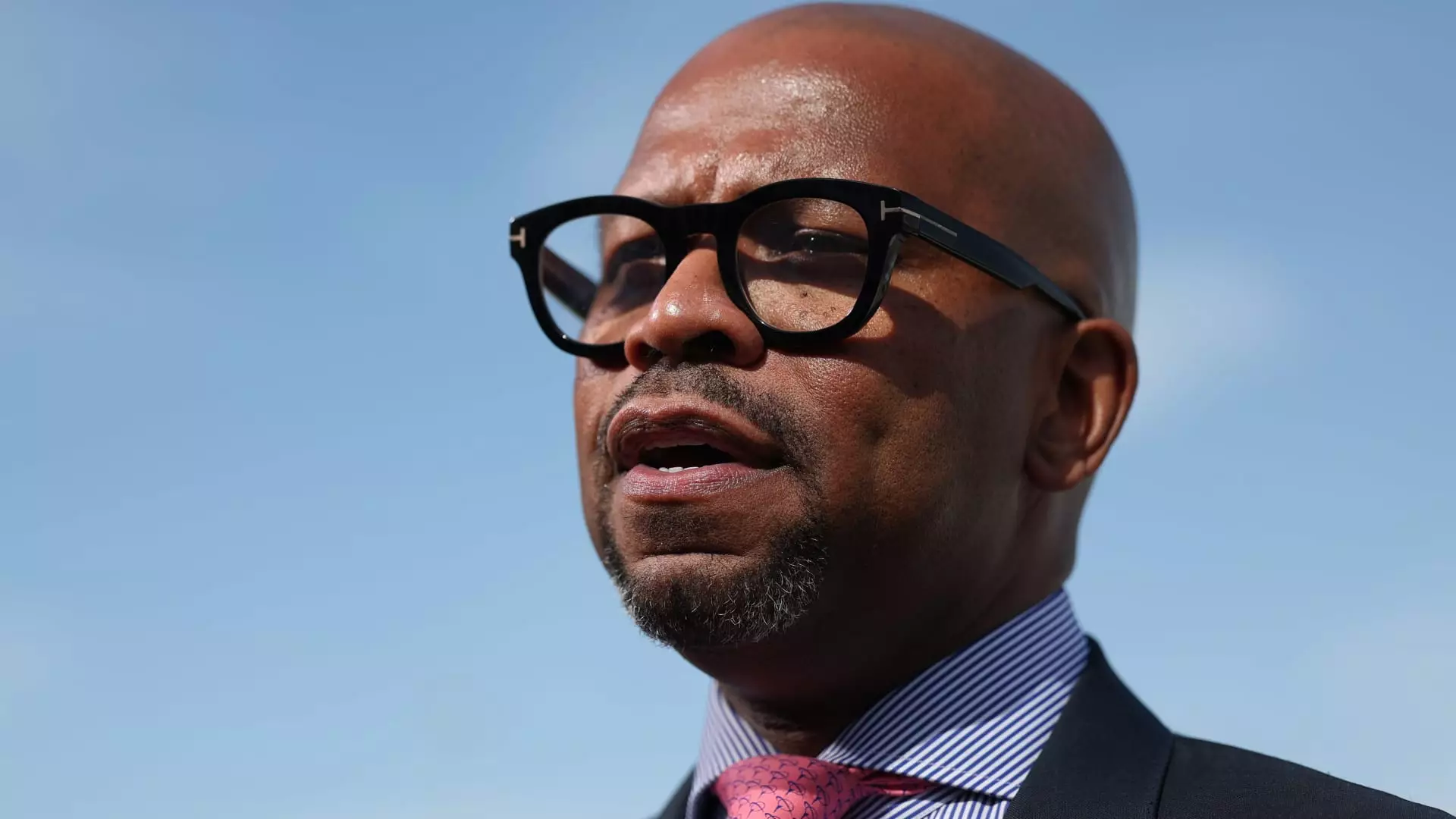The sudden exit of Ted Colbert, head of Boeing’s defense unit, signifies a major turning point for the aerospace giant amidst mounting challenges. Announced by CEO Kelly Ortberg in an internal memo, this decision marks the first significant executive shift since Ortberg took the reins in early August. As the company navigates a turbulent landscape characterized by operational challenges and public scrutiny, the transition in leadership could be a pivotal moment for Boeing.
In his memo, Ortberg emphasized the urgency of rebuilding customer trust and meeting the expectations vital for their essential missions worldwide. His statement reflects an acute understanding of the current atmosphere. With Boeing’s reputation taking hits from various fronts, from production delays to cost overruns, the company must prioritize transparency and reliability in its offerings. This commitment to restoration indicates a shift not only in leadership but also in corporate culture, aiming for a more accountable and performance-driven environment.
Boeing’s defense, space, and security segment has been a significant contributor to the company’s revenue, accounting for nearly 40% in the first half of the year. However, this reliance has exposed the company to vulnerabilities, particularly as the unit grapples with pressing production issues. Recently, delays concerning the new Air Force One aircraft spotlight the challenges facing Boeing. Underperformance in this segment could have far-reaching implications for the company’s bottom line, making the need for effective leadership all the more urgent.
Following Colbert’s exit, Chief Operating Officer Steve Parker’s ascension to temporary leadership is a strategic decision that aims to ensure continuity during this transition period. Parker’s familiarity with Boeing’s operations places him in a strong position to navigate immediate challenges while paving the way for a permanent successor. This interim arrangement serves not only as a stabilizing factor during a tumultuous time but also as a critical stopgap in rebuilding momentum within the defense unit.
Challenges Beyond Leadership Changes
While leadership changes are often heralded as necessary for revitalizing a struggling organization, the broader issues besieging Boeing cannot be overlooked. The space sector, too, has faced setbacks, exemplified by the Starliner’s recent mission returning without NASA astronauts—a glaring blemish on Boeing’s operational record. This incident, alongside ongoing production issues, manifests the complexities Boeing must address if it hopes to restore its reputation and retain its customer base.
The departure of Ted Colbert and the subsequent appointment of Steve Parker are mere steps among many that Boeing must navigate. As the company seeks to restore its stature in the aerospace industry, it must focus on tackling production inefficiencies, instilling a culture of accountability, and embracing innovation to meet the changing demands of its global clientele. The road ahead is fraught with challenges, but with targeted leadership and a commitment to excellence, Boeing could emerge stronger, more resilient, and capable of meeting the high expectations placed upon it.

Leave a Reply